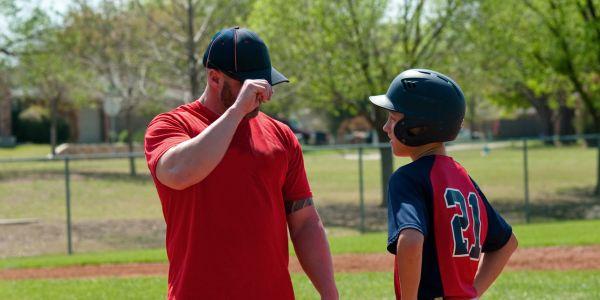Elite and Travel Teams Can Hurt Kids’ Confidence
That’s the view of Hal Phillips, a former sports parent and youth soccer coach, plus author of Generation Zero: Founding Fathers, Hidden Histories and the Making of Soccer in America. He spoke with us recently during an interview for our Ultimate Sports Parent podcast.
Elite and travel teams are basically set up to be “pay to play.” Kids feel pressured to excel because their parents are paying–often big bucks–for them to be on these teams.
And, when they’re on these teams, kids may also feel pressured to get college scholarships, he says. This can take the joy out of sports.
Sports parents often believe that their young athletes need sports scholarships to get into good colleges, and that joining elite and travel teams will help them, he says.
“Maybe kids feel like they need to pursue soccer or another sport to get themselves into college or get some kind of scholarship break. It’s a lot for a kid to shoulder,” Phillips said.
Joining elite teams can also create doubts in kids’ minds about where they stand, which can hurt their confidence, he said.
When kids play on these teams in the U.S., their parents have to pay. But in other countries, this isn’t true.
“Everywhere else in the world, kids who are good enough to get the attention of elite clubs go off and participate in academies where the club pays all the costs. Here, the parents pay them and that tends to warp the relationship between the club and the parent and the kid,” Phillips said.
It’s difficult for a coach to tell players that they’re not making the grade when the parents are spending thousands of dollars so their kids can play on the team, he says.
“The politics of a team are pretty clear to a kid often. And this just makes it more difficult for them to sort out their place on the team and their actual abilities with a clear eye,” he said.
Such confusion can make kids frustrated, which can undermine their focus and fun.
Instead of pushing kids to get sports scholarships and insisting they play on elite teams, parents should ensure that kids have the opportunity to play more than one sport so they know which sports they like, Phillips said.
In addition, parents should consider placing kids on high school teams, which are free and eliminate the potential for a parent-coach dynamic that’s based on paying to play.
Parents should also focus less on working toward sports scholarships to get into college. “Let’s be honest, getting into college is a huge driver of all of this stuff,” he said.
Related Articles on Kids’ Mental Game:
- The Downside of Elite Teams in Youth Sports
- What Can Athletes Learn from Elite Athletes’ Mindset?
- How to Care About Athletes’ Mental Health
*Subscribe to The Sports Psychology Podcast on iTunes
*Subscribe to The Sports Psychology Podcast on Spotify
Improve Your Mental Game From Anywhere In The World

We’re certain that, as a parent, you want to help your child develop confidence and discipline in sports and life. And as a sports parent, you’d love for your children to reach their potential in sports. But encouraging your child to strive for greatness without pressuring them can be a challenge.
You can get expert mental coaching with us from anywhere. Meet with us via Zoom, Skype, FaceTime or phone call. With today’s video technology, we are able to connect with athletes and coaches all over the globe.
Call Us Today to Schedule Your Free 15-Minute Session.
Find Out How Your Athlete Can Benefit From One-on-One Mental Coaching

